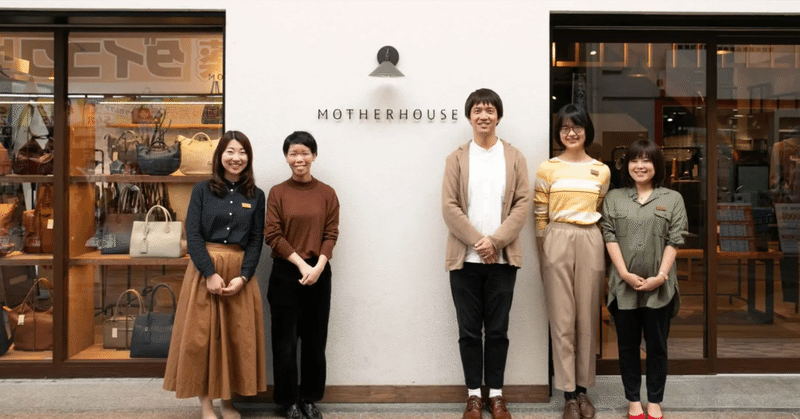
Embracing the Soulful Serenity of Motherhouse:A Personal Journey
Source:京都移住計画:https://kyoto-iju.com/cms/wp-content/uploads/2019/11/97I3541.jpg

Source:Business Insider Japan:https://media.loom-app.com/bi/dist/images/2019/12/12/yamaguchi_thumbnail.001-1.jpeg?w=640

Source:note:https://assets.st-note.com/img/1688535073446-2b607qkwiR.png?width=2000&height=2000&fit=bounds&quality=85
Introduction
Eriko Yamaguchi is founder, CEO, designer, Motherhouse Co.Ltd. Hana Saito is a store manager for Daimaru-Kyoto store.
Motherhouse can have two general meanings. Firstly, it refers to the main headquarters or central convent of a religious order or congregation, serving as their administrative center and spiritual home. Secondly, it can denote the original establishment or main headquarters of an organization or institution. The specific context or purpose of the term may vary.
Motivations and Wants
The motivation behind establishing a motherhouse, whether in a religious context or as the headquarters of an organization, stems from the desire to create a central hub that fosters community, spirituality, formation, education, leadership, and the preservation of historical and symbolic significance. It serves as a communal and administrative center, providing a space for members to come together, deepen their spiritual lives, receive education and training, carry out administrative duties, and uphold the values and traditions of the organization.
Paying Attention to Potential
Recognizing and harnessing the potential of a motherhouse involves acknowledging its capacity for community expansion, spiritual enrichment, educational initiatives, leadership development, and adaptability. By fostering growth, providing education and training, nurturing leaders, and embracing innovation, the motherhouse can fulfill its mission effectively and make a meaningful impact.

Engaging with Communities
Engaging with communities about a motherhouse involves actively involving them by opening the doors, initiating collaborative projects, conducting outreach programs, hosting cultural and educational events, promoting interfaith dialogue, providing volunteering opportunities, and seeking community input. By fostering connections, understanding, and service, the motherhouse can become an integral and vibrant part of the broader community.
Models of Engagement
When engaging with the community, a motherhouse can adopt various models of engagement, including partnership, service-oriented, cultural exchange, collaborative advocacy, educational and skill-building, and volunteer-based models. By employing these models, the motherhouse can establish meaningful connections, address community needs, promote dialogue, advocate for change, offer valuable services, and empower individuals for community development and growth.
Skills of Meaningful Engagement
Meaningful engagement with the community requires the motherhouse to possess skills such as active listening, cultural sensitivity, effective communication, collaboration, flexibility, empowerment, conflict resolution, patience, and persistence. By utilizing these skills, the motherhouse can establish genuine connections, understand community needs, foster collaboration, and work towards shared goals with the community it serves.

Personal Reflections and Discoveries
Engaging with a motherhouse can lead to personal reflections and discoveries that encompass spiritual awakening, a sense of community and belonging, self-discovery, commitment to service, appreciation of historical and cultural heritage, leadership development, inner peace, and fulfillment. These experiences shape an individual's journey, deepen their faith, and inspire a meaningful life within the community and beyond.
Conclusion
Motherhouses often hold significant value and importance within religious or organizational contexts. They serve as central hubs for community, spirituality, education, and administration. Motherhouses can be seen as symbols of tradition, heritage, and the preservation of values. They provide a space for members to deepen their spiritual lives, receive education and training, and foster a sense of unity and collaboration. Motherhouses can have a profound impact on individuals and communities, offering opportunities for personal growth, leadership development, and service to others. Ultimately, opinions about motherhouses may vary depending on individual beliefs, experiences, and perspectives.
Quote
https://kyoto-iju.com/cms/wp-content/uploads/2019/11/97I3541.jpg
https://media.loom-app.com/bi/dist/images/2019/12/12/yamaguchi_thumbnail.001.jpeg?w=1280
https://www.motherhouse.co.jp/cdn/shop/files/flagshop_05_1800x.jpg?v=1676251016
この記事が気に入ったらサポートをしてみませんか?
